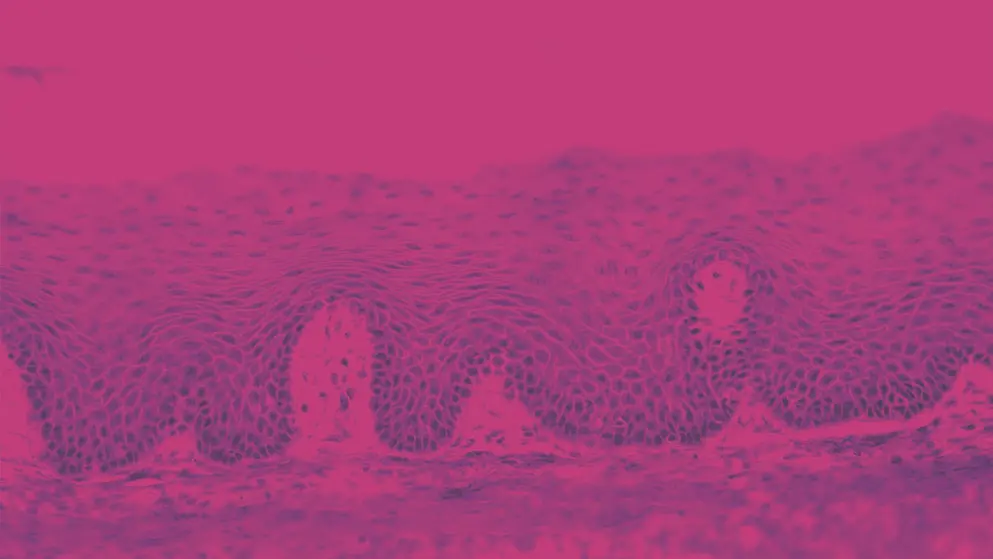
New England Journal of Medicine publishes efficacy and safety data of targeted oral peptide JNJ 2113 in a phase IIb moderate-to-severe plaque psoriasis study
Protagonist Therapeutics, Inc. announced publication in the New England Journal of Medicine (NEJM) of the Phase IIb FRONTIER 1 trial evaluating JNJ 2113 in adults living with moderate-to-severe plaque psoriasis (PsO)
JNJ 2113 is the first- and only-in-class targeted oral peptide inhibitor of the IL-23 receptor in clinical development. Based on the robust efficacy observed in moderate to severe PsO described in this NEJM publication, JNJ 2113 is currently being evaluated in multiple Phase III psoriasis studies in the ICONIC-program. PASI-90 is one of the co-primary endpoints for the initiated ICONIC-LEAD and the planned ICONIC-ADVANCE 1 and 2 Phase III studies, reflecting a higher bar for treatment goals in moderate to severe psoriasis. In addition, a Phase-IIb ANTHEM-UC study with JNJ 2113 in ulcerative colitis is also currently in progress.
This manuscript presented data from a randomized, multicenter, double-blind, placebo-controlled clinical trial, the FRONTIER 1 Phase IIb trial (NCT05223868) which evaluated three once-daily dosages and two twice-daily dosages of the oral targeted therapy peptide JNJ 2113. It was designed to assess the efficacy and safety of JNJ 2113 in patients with moderate-to-severe plaque PsO. A total of 255 participants were randomized into six treatment groups (placebo [n=43], 25 mg daily [n=43], 25 mg twice daily [n=41], 50 mg daily [n=43], 100 mg daily [n=43], and 100 mg twice daily [n=42]). The trial included a four-week screening period, a 16-week treatment period and a four-week safety follow-up period.
The primary endpoint of FRONTIER 1 was a reduction from baseline of at least 75% in the Psoriasis Area and Severity Index score (PASI-75 response) at Week 16. Study results showed a dose ordered-response in patients treated with JNJ 2113 on PASI-75 at Week 16, compared to patients treated with placebo, with 79 percent of patients achieving a PASI-75 response in the highest dose group tested of 100 mg twice daily. Results from secondary endpoints were consistent with these data, with the highest dose of JNJ 2113 showing 59.5% of patients achieving PASI-90, and 40.5% of patients achieving a PASI-100 at Week 16.
Additionally, a greater proportion of adult patients who received JNJ 2113 achieved an Investigator's Global Assessment (IGA) of cleared/minimal skin lesions (score of 0/1, respectively) at Week 16 versus patients treated with placebo. At the highest JNJ 2113 dose, 64.3% of patients achieved an IGA score of 0/1 and 45.2% of patients achieved a score of 0. IGA response rates showed a separation between JNJ 2113 and placebo groups as early as Week 4 and increased through Week 16.
In the study, improvements were observed across key Patient-Reported Outcomes (PROs) as measured by the Psoriasis Symptoms and Signs Diary (PSSD) and the Dermatology Life Quality Index (DLQI) among adult patients who received JNJ 2113. JNJ 2113-treated patients demonstrated greater improvements from baseline in the severity of their symptoms by Week 16, as assessed by the PSSD. Among patients with baseline DLQI scores greater than 1, significantly higher proportions of JNJ 2113-treated patients compared with placebo-treated patients achieved DLQI scores of 0/1 (no impact on quality of life) at Week 16.
Treatment with JNJ 2113 was associated with lower serum levels of human beta-defensin 2 (hBD-2), relative to placebo, as early as Week 4. The lowest hBD-2 level was observed with the 100 mg twice-daily dose, beginning by Week 8. Serum hBD-2 can be a useful biomarker of disease activity in people living with moderate-to-severe plaque PsO, as lower levels correlate with clinical response and indicate inhibition of the IL-17/IL-23 axis. The proportion of patients with adverse events (AEs) was comparable between the JNJ 2113 and placebo groups.
"We are extremely pleased with the clinical success thus far with our first- and only-in-class oral IL-23 receptor antagonist JNJ 2113 in psoriasis," said Dinesh V. Patel, Ph.D., President and CEO of Protagonist. "The strength of the FRONTIER 1 Phase IIb data and the robust ICONIC clinical program involving four different Phase III psoriasis studies, gives us ongoing confidence in JNJ 2113 and its future potential to address unmet needs in psoriasis and other IL-23 pathway mediated diseases including psoriatic arthritis, Crohn's disease and ulcerative colitis.
See- "An Oral Interleukin-23–Receptor Antagonist Peptide JNJ 2113 in Plaque Psoriasis"_ Robert Bissonnette, M.D., Andreas Pinter, M.D., Laura K. Ferris, M.D., Ph.D., S.et al. February 8, 2024 .N Engl J Med 2024; 390:510-521 DOI: 10.1056/NEJMoa2308713.

